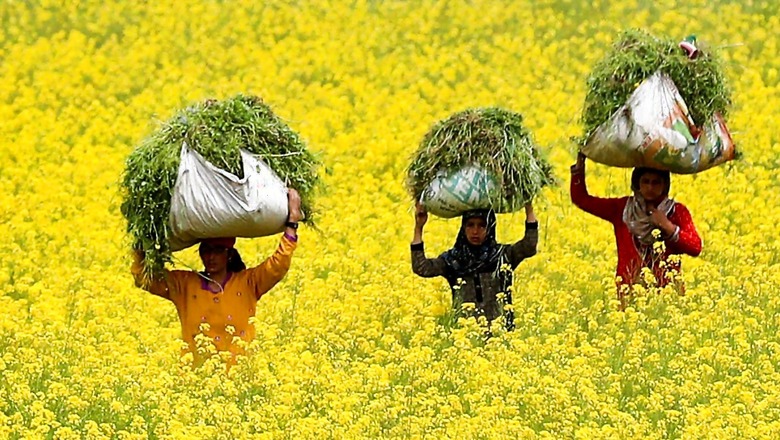
views
Nearly three decades ago when Prof Deepak Pental and his team first showed that Indian mustard ‘Varuna,’ if crossed with an East European variety, can produce a new hybrid, which can perhaps “out-yield” the best Indian varieties available, the scientists knew they were adopting a technology, which would face stiff resistance in years to come.
The team from the Delhi University’s Centre for Genetic Manipulation of Crop Plants picked up the gauntlet anyway, and, in 2002, successfully developed India’s first GM Mustard — DMH11 — just around the time when government approved country’s first transgenic crop Bt Cotton for commercial cultivation.
Over the next decade, as the country debated the need for genetically modifying its indigenous crops, the team carried on its research to establish that the new hybrid offered the alluring properties they promised – better yield (28%), disease-resistance and pest control. All this, without any additional input of water, fertilizer, or pesticides.
This October, almost 20 years later, India’s biotech regulator finally approved the environmental release of the hybrid along with its parental lines.
WHAT’S THE NEED?
Mustard is the top oil-yielding crop in India. Despite bumper harvest in winter, the home-grown production is not enough to meet country’s growing needs for edible oil, and it has to be imported in large quantities. The skyrocketing prices especially post-pandemic added to the challenge.
Boosting existing crop yields was one way to meet this demand, but with mustard, the indigenous growth was said to have stagnated. Hybridisation was suggested as one method, but no natural hybridisation was possible in self-pollinating mustard.
The DU team then used GM technology and isolated two genes – barstar and barnase from a soil bacterium to create DMH11. It was believed that its commercial cultivation of this ‘high-yielding variety’ could help India reduce its dependency on costly edible oil imports.
WHY ARE FARMERS OPPOSING?
While the research team continues to assure that technology involved in producing the hybrid is “safe and effective”, concerns are rife regarding its long-term impact on environment, human and the natural biodiversity, apart from moral and ethical issues.
One of the most significant is its potential impact on life-sustaining pollinators like honeybees, especially their foraging patterns. GEAC’s decision to conduct the field tests on its impact on pollinators only after the environmental release has drawn the ire of anti-GM groups led by environmental activists and farmer organisations who allege that the government body circumvented critical biosafety assessment, which should have been conducted prior to release.
Another concern stems from its herbicide-tolerant nature, which has led farmers to believe that they still be required to spray harmful herbicides. Also, there are strong apprehensions that this would impact market of swadeshi (indigenous) seeds, favour monopoly of multinational seed companies and open the floodgates for more GM crops in future.
Some farm unions have termed the GM crops “hazardous and unsafe for humans” citing examples of Bt Brinjal which was placed under indefinite moratorium in 2007.
Meanwhile, scientists supporting GM technology have countered it with examples of other successful hybrids like that of rapeseed — a sister crop of mustard which is also based on the barnase/barstar system and is grown in – the USA, Canada and Australia for last 20 years.
According to Prof Pental, all the three genes used in producing the hybrid have more than 20 years’ history of safe use in GM rapeseed.
WHAT NEXT?
With GEAC’s recommendation, the decks are now cleared for seed production and testing of GM Mustard under the supervision of Indian Council of Agricultural Research (ICAR), before it is release for commercial cultivation.
After its environmental release, field demonstration studies will be carried out over the next two years to study its effect on pollinators like honey bees in Indian agro-climatic conditions. The report will be submitted to GEAC.
The current approval is only for next four years, and can be extended to two years at a time, depending on compliance report. According to GEAC, the approval can be revoked in case of any evidence regarding harmful effects of the approved GM mustard, such as damage to the environment, nature or health.
While India is not the only country debating the use of GM crops, the technology has admirers and staunch opponents across countries. But with country’s top biotechnology regulator putting all speculations to rest with its latest recommendation, it remains to be seen if the Centre government will also follow suit and decide if the country is finally ready to adopt GM technology just yet.
Read all the Latest India News here




















Comments
0 comment